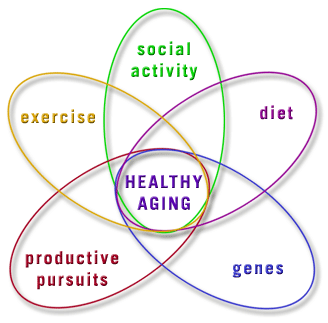Better Health Workshop
Nutrition and Diet
by John Stephen Veitch, The Network Ambassador.
 Your health, be it good or bad, is driven by the quality of the knowledge you have. You cannot and will not accept what anyone says, to change what you already know, without a fight. I'd rather not that you have that fight with me. Hence my intention here is offer you access to some other people who have taught me a lot. Take your time and read long and deep. Gradually the defensive wall that stops you learning anything different will begin to crumble, as you realise that some of the things you were taught, and believe, don't make sense any longer. Now your deschooling can begin. As you continue to search for better health information, slowly what you are reading will begin to make sense to you.
Your health, be it good or bad, is driven by the quality of the knowledge you have. You cannot and will not accept what anyone says, to change what you already know, without a fight. I'd rather not that you have that fight with me. Hence my intention here is offer you access to some other people who have taught me a lot. Take your time and read long and deep. Gradually the defensive wall that stops you learning anything different will begin to crumble, as you realise that some of the things you were taught, and believe, don't make sense any longer. Now your deschooling can begin. As you continue to search for better health information, slowly what you are reading will begin to make sense to you.
![]()
 The Image on the left does present a sensible way to think about your health. In the topics below I'll modify the headings just a little bit.
The Image on the left does present a sensible way to think about your health. In the topics below I'll modify the headings just a little bit.
We all act as if there is ![]() some expert who knows what the perfect BALANCED human diet is, which if followed would lead to optimal human health. Such expertise doesn't exist. Nor does that perfect diet.
some expert who knows what the perfect BALANCED human diet is, which if followed would lead to optimal human health. Such expertise doesn't exist. Nor does that perfect diet.
For me the biggest change in my thinking has been about my personal diet. From lots of carbohydrates, and often the more the better, twenty years ago, through learning to eat less bread and potatoes, to my current diet of zero grains, and only carbohydrates from vegetables and a little fruit. The reason for changing was always in seeking the most healthy diet.
My wife frequently cooks vegetarian meals. For her for many years that was an ideal she aimed for, though we have always eaten at least one substantially meat meal a week, often chicken, but not always. We lived by the low fat, and minimal red meat rule, but we were getting fatter. We have many friends who are vegetarians, one whom has a heart problem. It never occurred to us that his diet might be the cause of a cardiovascular problem. With the new knowledge I've gained recently, I now wonder. Perhaps the lack of fatty acids or some nutriment that can only be gained from eating meat, is the cause of problems in that suspect heart. I don't know.
The easiest place to start is in this blog: ![]() The Eating Academy by Dr. Peter Attia. The blog has been running of 2-3 years, and there's lots of information there.
The Eating Academy by Dr. Peter Attia. The blog has been running of 2-3 years, and there's lots of information there.
Peter Attia has a partnership with Gary Taubes, in the ![]() Nutrition Science Initiative, presenting this information to the public. Gary Taubes is a journalist who spent 2-3 years researching this article "
Nutrition Science Initiative, presenting this information to the public. Gary Taubes is a journalist who spent 2-3 years researching this article "![]() What if It's All Been a Big Fat Lie?" that was published in the New York Times in 2002. It's worth a read and worth printing. Gary Taubes wrote, "
What if It's All Been a Big Fat Lie?" that was published in the New York Times in 2002. It's worth a read and worth printing. Gary Taubes wrote, "![]() Good Calories and Bad Calories: Fats, Carbs, and the Controversial Science of Diet and Health" in 2007, and a more readable book (I'm told) "
Good Calories and Bad Calories: Fats, Carbs, and the Controversial Science of Diet and Health" in 2007, and a more readable book (I'm told) "![]() Why We Get Fat: And What to Do About It" in 2011.
Why We Get Fat: And What to Do About It" in 2011.
![]() Gary Taubes - Why We Get Fat: The Diet/Weight Relationship, An Alternative Hypothesis It's not about calories and it's not about overeating. (1 hour)
Gary Taubes - Why We Get Fat: The Diet/Weight Relationship, An Alternative Hypothesis It's not about calories and it's not about overeating. (1 hour)
Obesity is the result of hormone disorder, particularly involving insulin, and driven by the excessive intake of carbohydrates. Don't count calories, that doesn't help. Your genes do affect how you metabolize food, but it's a hormone disorder involving insulin, CAUSED be eating too much carbohydrate that makes people fat.
If you want an interesting historical read that puts the nutrition debate in perspective, ![]() Death by Food Pyramid: How Shoddy Science, Sketchy Politics and Shady Special Interests Have Ruined Our Health, (2014) by Denise Minger is a good choice. Denise Minger, is a journalist, but she has good research skills. Here are two well written reviews
Death by Food Pyramid: How Shoddy Science, Sketchy Politics and Shady Special Interests Have Ruined Our Health, (2014) by Denise Minger is a good choice. Denise Minger, is a journalist, but she has good research skills. Here are two well written reviews ![]() Michael R Eades, MD., or the
Michael R Eades, MD., or the ![]() Weston Price Foundation.
Weston Price Foundation.
If you want to study the science the ![]() Nutrition & Metabolism Society, is the leading organisation promoting the use of scientific methods in the choice of a diet for human subjects.
Nutrition & Metabolism Society, is the leading organisation promoting the use of scientific methods in the choice of a diet for human subjects.
![]() Metabolic syndrome (MetS) is a medical term for a constellation of health symptoms or markers related to insulin resistance in the body. It's thought that more than half the population in developed countries have
Metabolic syndrome (MetS) is a medical term for a constellation of health symptoms or markers related to insulin resistance in the body. It's thought that more than half the population in developed countries have ![]() Metabolic Syndrome to some degree, and almost everyone is on a progressive path in that direction. "Although there is no universally accepted definition or mechanism, a rough common denominator is the set of five features: obesity (high body weight, BMI and/or waist circumference), high glucose and insulin levels, low HDL, high TAG and high blood pressure. Involvement of insulin resistance is generally a common feature and a likely causative agent for at least some of the symptoms."
Metabolic Syndrome to some degree, and almost everyone is on a progressive path in that direction. "Although there is no universally accepted definition or mechanism, a rough common denominator is the set of five features: obesity (high body weight, BMI and/or waist circumference), high glucose and insulin levels, low HDL, high TAG and high blood pressure. Involvement of insulin resistance is generally a common feature and a likely causative agent for at least some of the symptoms."
![]() Prof. Tim Noakes - 'Medical aspects of the low carbohydrate lifestyle' (Sep 2014) (45 min)
Prof. Tim Noakes - 'Medical aspects of the low carbohydrate lifestyle' (Sep 2014) (45 min)
![]() Professor Timothy Noakes introduced me to the concept of low-carbohydrate diets two years ago. It seemed too fantastic, so I didn't rush in and try it. Prof. Noakes is a South African professor of exercise and sports science at the University of Cape Town. He has run more than 70 marathons and ultramarathons and is the author of several books on exercise and diet. He is known for his support of a high-fat, low-carbohydrate diet, as set out in his book "The Real Meal Revolution." (Actually that book was only available in South Africa. The second edition for world wide distribution was released in July, 2015.)
Professor Timothy Noakes introduced me to the concept of low-carbohydrate diets two years ago. It seemed too fantastic, so I didn't rush in and try it. Prof. Noakes is a South African professor of exercise and sports science at the University of Cape Town. He has run more than 70 marathons and ultramarathons and is the author of several books on exercise and diet. He is known for his support of a high-fat, low-carbohydrate diet, as set out in his book "The Real Meal Revolution." (Actually that book was only available in South Africa. The second edition for world wide distribution was released in July, 2015.)
Professor Timothy Noakes, is currently being "disciplined" by the Health Professions Council of South Africa, although "who is on trial" can easily be disputed. It is my belief that the whole nutrition paradigm for Western society is being challenged, and not without a fight. ![]() See for yourself what the "trial" is about.
See for yourself what the "trial" is about.
![]()
Copyright © Open Future Limited, January 2015. All rights reserved.